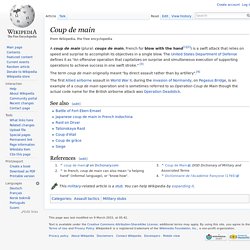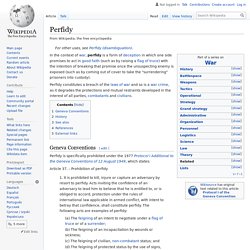

Pejorative. Polemic. Imprimatur. Axiom. Tractable. Ebullient. Ebullient. Venal. Exquisite. Languid. Listless. Frisson. Assiduous. Aphorism. Avarice. Indelible. Fiat. Anodyne. Diffident. Rapacious. Sardonic. Sodality. Reticence. Inchoate. Transmute. Apostate. Didactic. Ennui. Obsequious. Venal. Miscreant. Pernicious. Duplicity. Panopticon. Prison design Plan of Jeremy Bentham's panopticon prison, drawn by Willey Reveley in 1791.
The panopticon is a type of institutional building and a system of control designed by the English philosopher and social theorist Jeremy Bentham in the 18th century. The concept of the design is to allow all prisoners of an institution to be observed by a single security guard, without the inmates being able to tell whether they are being watched. Conceptual history[edit] A drawing of a panopticon prison by Willey Reveley, circa 1791. Elevated view of the panopticon prison, by Reveley 1791.[2] The word panopticon derives from the Greek word for "all seeing" – panoptes.[3] In 1785, Jeremy Bentham, an English social reformer and founder of utilitarianism, travelled to Krichev in White Russia (modern Belarus) to visit his brother, Samuel, who accompanied Prince Potemkin.[4]:xxxviii Bentham arrived in Krichev in early 1786[5] and stayed for almost two years.
Pique. Cognoscenti. Get the Word of the Day - twitterpated. Alacrity. Garrulous. University of Ingolstadt. Coup de main. A coup de main (plural: coups de main, French for blow with the hand[1][2]) is a swift attack that relies on speed and surprise to accomplish its objectives in a single blow.

The United States Department of Defense defines it as "An offensive operation that capitalizes on surprise and simultaneous execution of supporting operations to achieve success in one swift stroke. " [3] The term coup de main originally meant "by direct assault rather than by artillery".[4] The first Allied airborne assault in World War II, during the invasion of Normandy, on Pegasus Bridge, is an example of a coup de main operation and is sometimes referred to as Operation Coup de Main though the actual code name for the British airborne attack was Operation Deadstick.
Feckless. Limen. Apocryphal. Sardonic. Perfidy. Nadir. Concomitant. Diaphanous. Perfidy. Perfidy. Geneva Conventions[edit] Perfidy is specifically prohibited under the 1977 Protocol I Additional to the Geneva Conventions of 12 August 1949, which states:

Insouciant. Coup de grâce. Clemency. Salubrious. Vituperation. Opprobrium. Ameliorate. Get the Word of the Day - quidnunc. Mitigating. Abrogate. Obscure. Recrudescence. Get the Word of the Day - maudlin. Absolution. Inexorable. Perfidious. Repudiate. Sobriquet. In toto. Dictionary for mobile. Admonition. Implacable. Obdurate. Misanthrope. Loquacious. Amorphous. Ataraxia. "Ataraxia" (ἀταραξία, "tranquility") is a Greek term used by Pyrrho and Epicurus for a lucid state of robust tranquility, characterized by ongoing freedom from distress and worry.[1] Epicureanism[edit] For Epicureanism, ataraxia was synonymous with the only true happiness possible for a person.

It signifies the state of robust tranquility that derives from eschewing faith in an afterlife, not fearing the gods because they are distant and unconcerned with us, avoiding politics and vexatious people, surrounding oneself with trustworthy and affectionate friends and, most importantly, being an affectionate, virtuous person, worthy of trust. [citation needed] Pyrrhonism[edit] For Pyrrhonism, given that neither the sense impressions nor the intellect, nor both combined, is a sufficient means of knowing and conveying truth, one suspends judgement on dogmatic beliefs or anything non-evident. Stoicism[edit] See also[edit] References[edit] Jump up ^ "Dictionary.com". External links[edit] Axis mundi. The axis mundi (also cosmic axis, world axis, world pillar, center of the world, world tree), in certain beliefs and philosophies, is the world center, or the connection between Heaven and Earth.

As the celestial pole and geographic pole, it expresses a point of connection between sky and earth where the four compass directions meet. At this point travel and correspondence is made between higher and lower realms.[1] Communication from lower realms may ascend to higher ones and blessings from higher realms may descend to lower ones and be disseminated to all.[2] The spot functions as the omphalos (navel), the world's point of beginning.[3][4][5] Imperturbable. Obsequious. Avarice. Ardor. Apocryphal. Eviscerate. Reticent. Ornery. Immutable. Misanthropy. List of English words of Yiddish origin. This is a list of words that have entered the English language from the Yiddish language, many of them by way of American English.

There are differing approaches to the romanisation of Yiddish orthography (which uses the Hebrew alphabet) and the spelling of some of these words may therefore be variable (for example, schlep is also seen as shlep, schnoz as shnozz). Many of these words are more common in the US entertainment industry, via vaudeville, the Catskills/Borscht Belt, and Hollywood. Others are more regionally oriented, e.g., in the New York City metropolitan area. A number of Yiddish words also entered English via large Jewish communities in Britain, particularly London, where Yiddish has influenced the Cockney dialect. A number of Yiddish words are related to Hebrew, Germanic or Slavic forms, and some words of those origins have entered English via Yiddish. Background[edit] Many of these words have slightly different meanings and usages in English, from their Yiddish originals.
Cogent. Ingenuous. Disingenuous. Perfidy. Capricious. Eviscerate. Inert. Vituperation. Insidious. Pernicious.